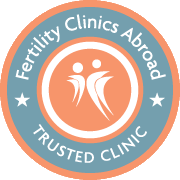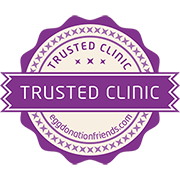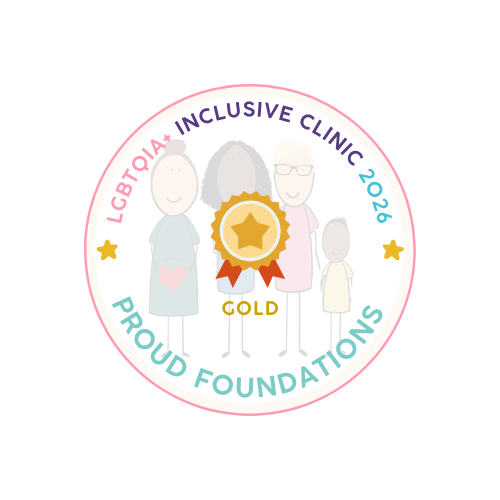Read a series of tips that can help you increase your chances of getting pregnant.
1. Have a healthy diet
Staying well-nourished boosts your odds of conceiving. Include in your daily diet enough protein, iron, zinc, vitamin C, and vitamin D (good food sources: broccoli, nuts, chicken leg and lobster). The above nutrients deficiencies are prompt to irregulate menstrual cycles, cause anovulation and lead to early miscarriage. A daily tablet of Folic acid (400 mcg) is highly recommended for women trying to conceive.
2. Watch your weight
Maintaining a healthy weight is one of the key points in fertility. The rising incidence of obesity has had a profound impact on female reproductive health. As slightly irrelevant as it may seem to the keen eye, obesity can highly irregulate a woman’s fertility status. Staying healthy means complying with dietary guidelines, preserving a normal body fat level and exercising. Younger women with obesity issues have much poorer fertilization rates and their embryo quality is impaired. Increased body mass index (BMI) is associated with anovulatory infertility. Gradual sustained weight loss is beneficial and highly recommended.
3. Quit smoking!
Smoking substantially affects the reproductive process and damages the DNA in both eggs and sperm. Exposure to cigarette toxins can impact the development of a woman’s ovaries, increase the risk of pregnancy complications, miscarriage or ectopic pregnancy. Early menopause is also an undesirable side effect of smoking (almost 2 years earlier than non-smokers).
4. Caffeine intake!
Although there’s little evidence of a connection between caffeine intake and fertility, most experts believe that a high level of caffeine consumption (above 5 cups of coffee per day) can somehow increase the chances of infertility. In overall, moderate caffeine intake (1 to 2 cups of coffee per day), while trying to conceive, is generally considered safe.
5. Alcohol!
The effect of alcohol on female fertility has not been clearly established. Whereas some studies have concluded that alcohol has a detrimental effect, others have suggested that mild alcohol consumption may enhance fertility. Although higher levels of alcohol -- two drinks or more a day -- should be avoided when trying to get pregnant, there is no evidence to show that moderate alcohol consumption adversely affects fertility. You will, though, want to cut out alcohol completely once you are pregnant. Drinking while pregnant increases the risk of serious birth defects.
6. The “Fertile Window” and intercourse.
A rather odd definition of such high importance. The “fertile window” is the six-days that end on the day of ovulation. Pregnancy is most likely to occur with intercourse within the three days before ovulation. Frequent intercourse (every 1 to 2 days) during the fertile window yields the highest pregnancy rates. Results however achieved with less frequent intercourse (2 to 3 times per week) are nearly equivalent. Stress associated with trying to conceive can reduce sexual esteem, satisfaction, and the frequency of intercourse. Couples are therefore advised to follow their own preferences within the context of the fertile window.
7. Lubricants and coital practices
For women trying to conceive, the use of lubricants should be done with caution. Products with spermicidal agents and commercially available water-based lubricants such as Astroglide, KY Jelly, and Touch, may inhibit sperm motility by 60% to 100%. Mineral oil, canola oil, or hydroxyethylcellulose-based lubricants are the safest options. In terms of intercourse, the coital position does not affect in any way a woman’s fecundability. Sperm can be found in the cervical canal seconds after ejaculation, regardless of coital position.
8. Know Your Cycle
A normal menstrual cycle lasts about 21 to 35 days (start counting on the first day of your period). When you're ready to conceive, find your fertile window, during which you should have intercourse regularly. A woman's fertile days are usually the day of ovulation and the four of five days before. But don't assume that you automatically ovulate on day 14 of your cycle: A study from the National Institute of Environmental Health Sciences found that ovulation varies dramatically from woman to woman, occurring as early as day 6 and as late as day 21 of a cycle. How can you determine when you're ovulating? Urine- or saliva-based ovulation test kits are available over the counter; both types check for the presence of hormones that indicate ovulation is imminent. You can also note daily changes in your basal body temperature.
9. Show providence
It is a well-known fact that fertility rates in young women are considerably high. Nowadays, most women decide to embark on creating a family in their thirties or forties. Even though a fit and healthy 40-year-old woman can possibly become a mother in that age, in most cases, there’s a relatively high chance of miscarriage. It’s wiser, therefore to consider your options at a much earlier stage.
10. Protect those sperm!
According to the American Society for Reproductive Medicine (ASRM), the idea that changing to boxers instead of briefs will boost fertility by keeping temperatures at the genitals down is basically an old wives' tale. Earlier studies seemed to point to boxers as the better choice. But more recent studies haven't shown a major difference. What about exposing the testicles to other sources of heat? The ASRM says controlling temperature doesn't play much of role in boosting fertility. Some doctors, though, recommend staying away from certain sources like for example sitting in a hot tub. In at least one study, repeated exposure to high water temperatures through hot tubs or hot baths was shown to affect men's fertility.
Newlife IVF Greece is one of the leading IVF Units in Europe and can assist you to assess your fertility and help you find the suitable treatment if you are troubled with infertility issues.











